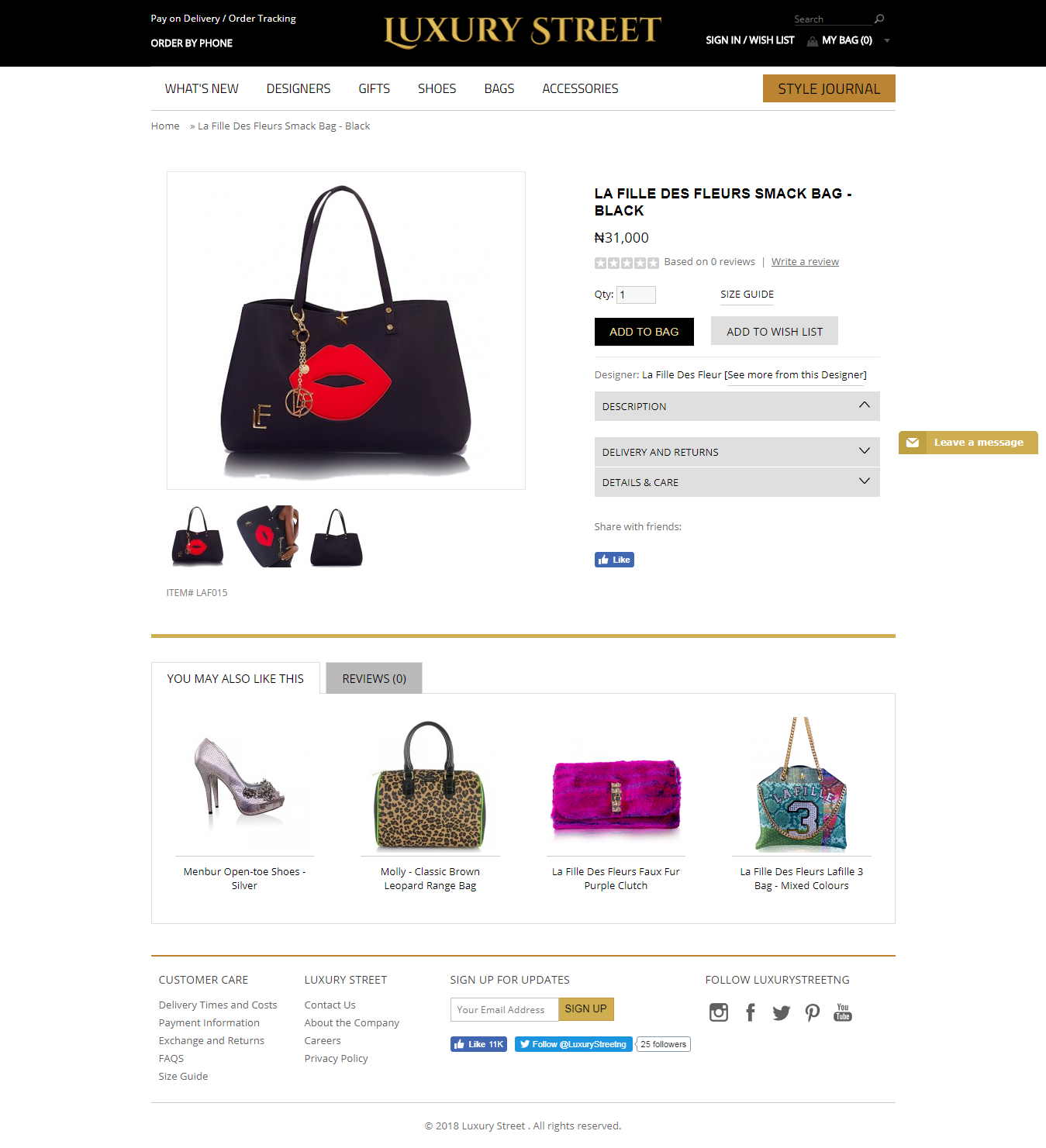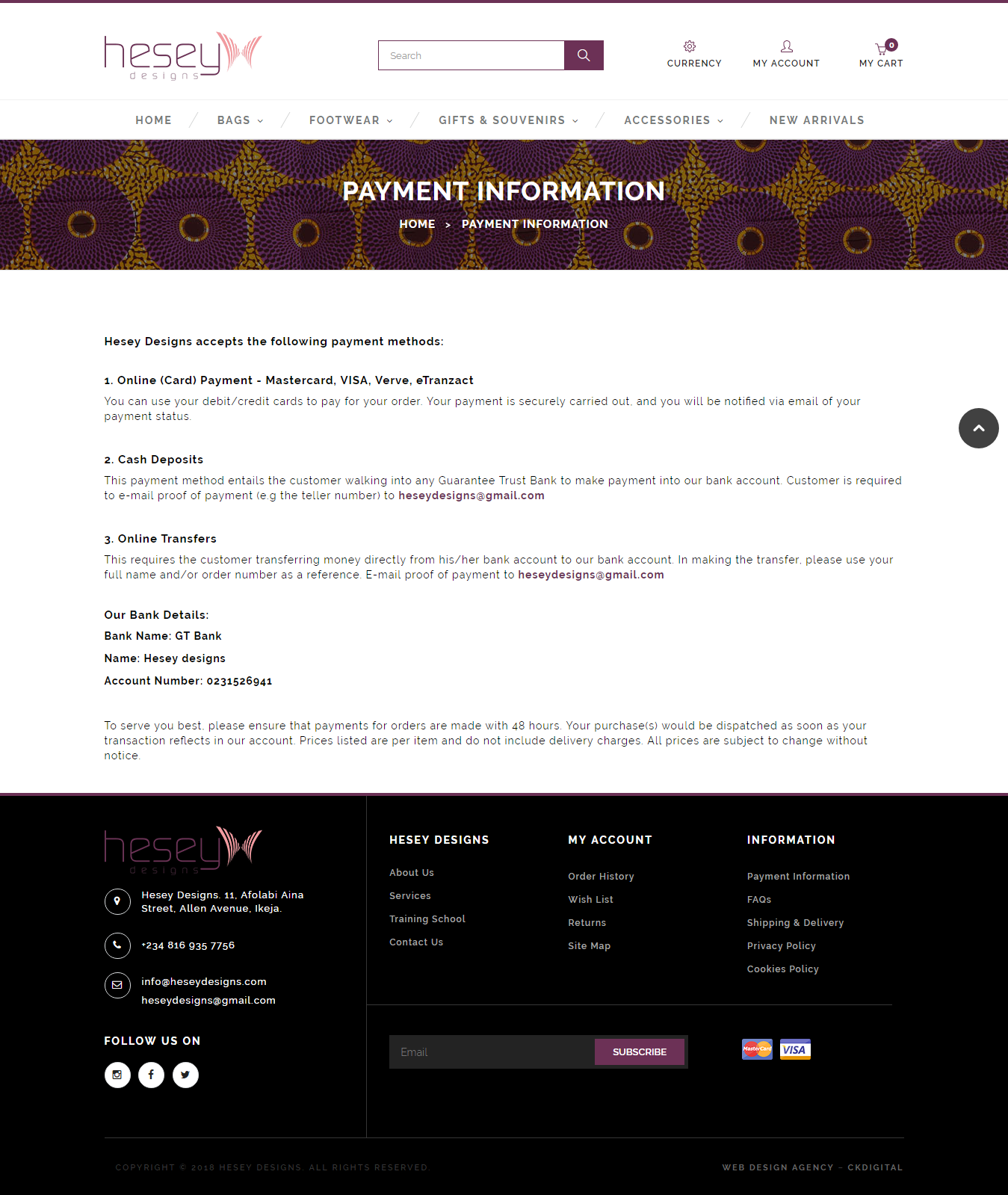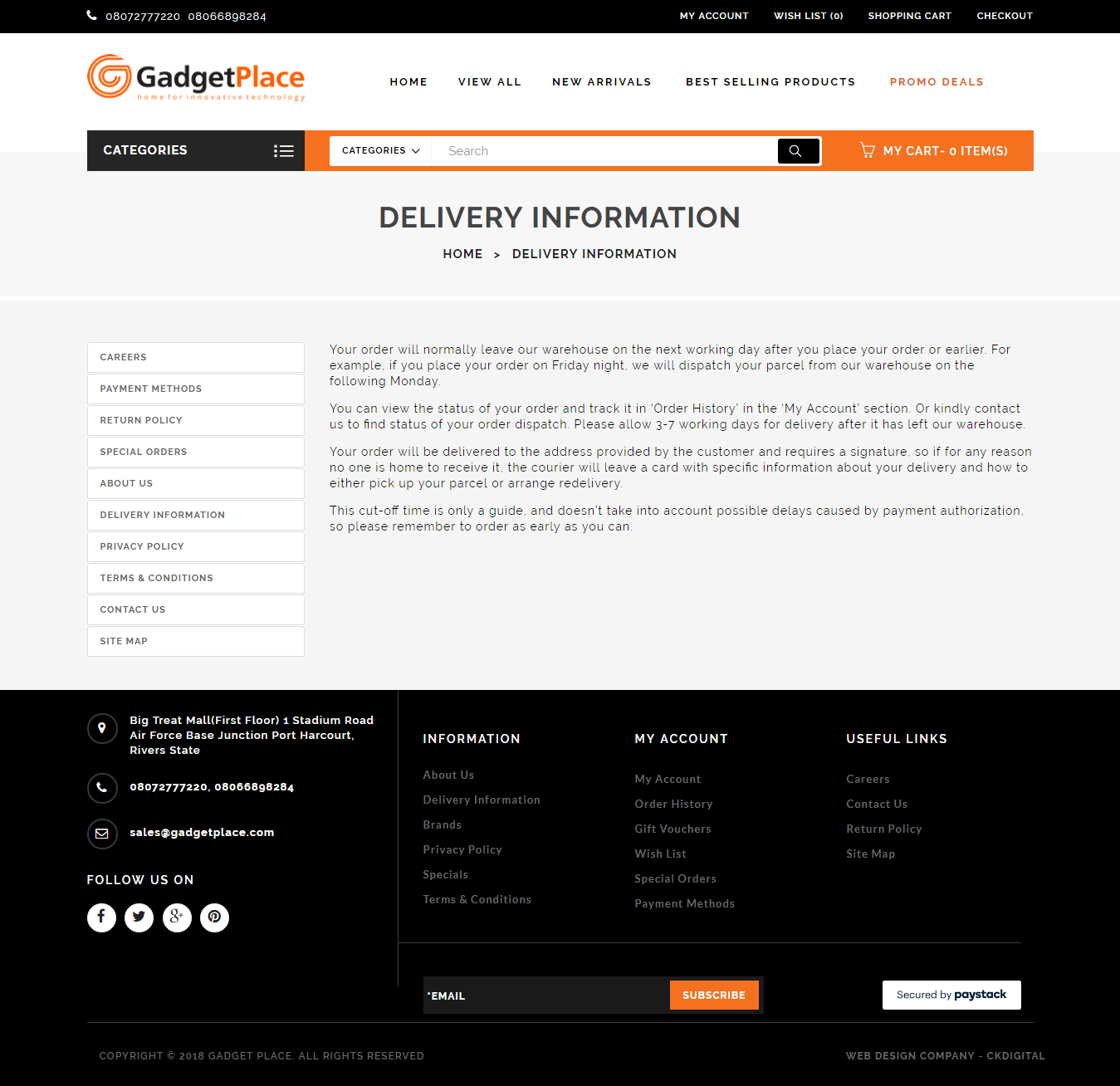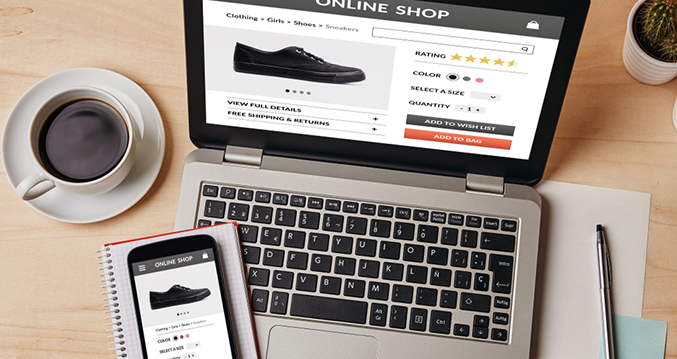An online store is an eCommerce website that enables visitors/users/customers to find, order and pay for products and services over the internet. Below is a list of web pages every online store should have, with typical visual examples.
1. Home Page
The homepage is the face/entrance of your website and it gives a first impression about how your customers will perceive your business. It should be designed in such a way that it will draw the attention of users.
- At a glance, users should be able to tell the nature of your business
- Navigation should be made easy for visitors by adding a search box
- Use clear and eye-catching Calls-to-Action (CTAs) – what you want users to do
Your home page should contain captivating images (visuals) that link directly to product and category pages, wherever possible, to capture the visitor’s attention.

2. Category Page
This page allows customers to browse and view lots of products at once. It also helps visitors narrow down their choices intuitively to find the product(s) that best fit their interest and needs. Specific products can also be searched for using the filter which helps to narrow down the categories and subcategories.

3. Product Page
The product page is where the final buying decision is made. It must provide detailed information about a product of interest, such as:
- Name
- Pictures (and videos if available)
- Price
- Description
- Options available

4. Shopping Cart Page
The page shows a collection of all products that have been selected as well as the next step required in order to purchase the selected product(s). This is where order processing is initiated. It facilitates the eventual purchase of the selected product(s).

5. Checkout Page
A user can get to this page after adding to products to cart. This is where the eventual purchase of the selected product(s) that have been added to the shopping cart is/are made. Here, there are two options to checkout.
- Guest Checkout -It allows users to make a purchase on your website without having to register/login to an account.
- Register/Login Account – User’s database is saved for subsequent transactions.

6. Contact Us Page
The contact page is the main way your customers communicate with you. This is where you provide your visitors with all of the different ways they can get in touch with you by putting the information they’re looking for, such as:
- Email address
- Phone number(s)
- Physical address
- Contact form
… amongst others

7. Payment Methods Page
This page provides information about the payment methods that are available to facilitate payment transaction on the website. Some payment methods include:
- Bank Transfers
- Online (Card) Payment
- E-wallet
- Cash
… amongst others

8. Delivery Information Page
This page provides detailed information on the available delivery options and processes as well as how orders can be tracked.

9. The ‘About Us’ Page
About Us Page is an informative page where you provide an overview of the history of your business and educate your visitor about how you are different from your competitors. It usually includes a detailed description covering all aspects of your business. There are three key questions this page needs to answer:
- Who are you?
- Why are you doing this? (your aim)
- What makes you different? (unique selling point)
It is important it is kept short and should include important and meaningful details that can earn the trust of your buyers.

10. FAQs Page
The Frequently Asked Question (FAQ) page provide answers to common concerns, questions or objections that customers have. This page addresses specific questions about your products, business processes, and operations. It reduces the stress of answering the same questions over and over again.




